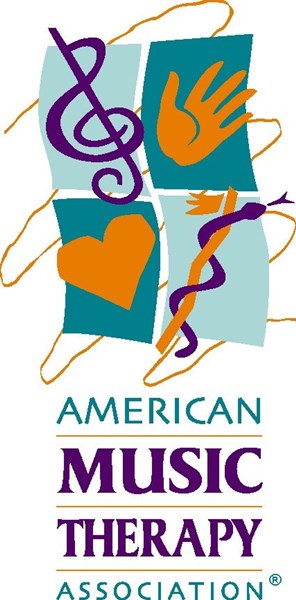 Code of Conduct
Code of Conduct
The American Music Therapy Association expects that members and all AMTA annual conference attendees (either virtual or in-person) will promote a safe and ethical environment along with a culture of civility and kindness, treating all with dignity and respect regardless of whether they are at a conference, in an online community, in the workplace, etc. Harassment, bullying, or discrimination of any kind is not tolerated. Please use professional behavior with all – including friends, colleagues, volunteers, conference attendees, guests, staff, and anyone you come into contact with, so that everyone can enjoy the community to the fullest extent possible. Volunteers and staff work hard to ensure everyone has a positive experience. Members and attendees at the AMTA conference should expect to hold to a professional code of conduct that is consistent with the AMTA Code of Ethics and represent the music therapy profession in a positive light. At any event, attendees should be prepared to adhere to directions and signs provided for safety concerns, respect open and closed special events or sessions, follow CBMT guidelines for earning CMTE credits, and participate as outlined in special events run by volunteers and staff, etc. Remember that special guests, clients, students, and others not affiliated with the AMTA may be in attendance and their perception of the music therapy profession is affected by the way music therapists present themselves. AMTA reserves the right to remove anyone found not in compliance with the Code of Conduct.
Virtual Programs Code of Conduct
AMTA is committed to providing a safe, productive, and welcoming environment for all participants and AMTA staff in the virtual environment. All participants, including, but not limited to, attendees, speakers, volunteers, industry partners, exhibitors, AMTA staff members, service providers, and all others are expected to abide by this Virtual Programs Code of Conduct. This Policy applies to all AMTA conference events, including those sponsored by organizations other than AMTA but held in conjunction with AMTA conference, on public or private platforms. AMTA has zero-tolerance for any form of discrimination or harassment, including but not limited to sexual harassment by participants or our staff at our meetings.
If you experience harassment or hear of any incidents of unacceptable behavior, AMTA asks that you contact the AMTA Vice President or Vice President Elect at amtasymposium@gmail.com so that we may take the appropriate action.
Unacceptable Behavior is defined as:
- Harassment, intimidation, or discrimination in any form.
- Verbal abuse of any attendee, speaker, volunteer, industry partner exhibitor, staff member, service provider, or other meeting guest.
- Examples of verbal abuse include, but are not limited to, verbal comments related to gender, sexual orientation, disability, physical appearance, body size, race, religion, national origin, inappropriate use of nudity and/or sexual images in public spaces or in presentations, or threatening or stalking any attendee, speaker, volunteer, industry partner, exhibitor, staff member, service provider, or other meeting guest.
In addition, participants are asked to adhere to the following rules:
- The recording or transmission of any education sessions, presentations, demos, videos, or content in any format is strictly prohibited.
- Disruption of presentations during sessions, in the exhibit hall, or at other events organized by AMTA throughout the virtual meeting. All participants must comply with the instructions of the moderator and any virtual event staff.
- Presentations, postings, and messages should not contain promotional materials, special offers, job offers, product announcements, or solicitation for services. AMTA reserves the right to remove such messages and potentially ban sources of those solicitations.
- Any direct selling of products/services offered by speakers, industry partners, or consultants in any public area of the virtual platform is prohibited. Many of the engagement conversations are based around knowledge and expertise and are not categorized a direct sales pitch. Selling must be conducted during mutually agreed upon private video, audio, or text conversations.
- Participants should not copy or take screen shots of Q&A or any chat room activity that takes place in the virtual space.
- AMTA reserves the right to remove verbal or written communications from any chat, session, recording, or other places on the platform that violate these policies.
AMTA reserves the right to take any action deemed necessary and appropriate, including immediate removal from the meeting without warning or refund, in response to any incident of unacceptable behavior, and AMTA reserves the right to prohibit attendance at any future meeting, virtually or in person.
Accommodations for Persons with Disabilities
AMTA is committed to supporting full participation for conference attendees with disabilities. Every attempt is made for full compliance with the Americans with Disabilities Act and beyond. If you should require accommodations to participate in the conference, please indicate your needs by contacting the AMTA National Office as soon as feasible and prior to the conference to be discussed and all attempts to address made before the conference begins. Every attempt will be made to ensure satisfactory participation. Please bring your confidential requests, questions, or concerns, directly to AMTA Conference team at amtasymposium@gmail.com to allow reasonable accommodations to be fully considered based on individual needs.
Additional AMTA Policies
Please review AMTA’s Anti-Harassment and Non-Discrimination policies. AMTA members and all who participate in AMTA events are expected to follow AMTA’s Code of Ethics. To view all AMTA official documents and policies, click here.
Anti-harassment Resources for Support
Information subject to change